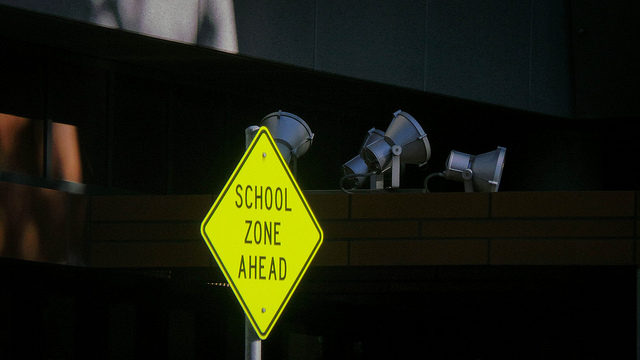Last week, researcher danah boyd, who has written extensively about young people’s attitudes toward privacy (and debunked many pervasive “gut feelings” about those attitudes and related behaviors), wrote a piece about the several bills now working their way through Congress that aim to protect “student privacy.” boyd is not impressed. While she agrees that reform of current educational privacy laws is much needed, she writes, "Of course, even though this is all about *students*, they don’t actually have a lot of power in any of these bills. It’s all a question of who can speak on their behalf and who is supposed to protect them from the evils of the world. And what kind of punishment for breaches is most appropriate."
boyd highlights
four different “threat models” and argues that the proposed bills do nothing to address two of those: the “Consumer Finance Threat Model,” in which student data would “fuel the student debt ecosystem,” and the “Criminal Justice Threat Model,” in which such data would help build “new policing architectures.”
As boyd puts it, “the risks that we’re concerned about are shaped by the fears of privileged parents.”
In a related post called “
Students: The one group missing from student data privacy laws and bills,” journalist Larry Magid adds that the proposed bills “are all about parental rights but only empower students once they turn 18.” Referencing boyd’s research, he broadens the conversation to argue that “[i]t’s about time we start to respect privacy, free speech rights and intellectual property rights of children.”
While free speech and property rights are important, the protection of
privacy in particular is essential for the full development of the self. The fact that children and young people need some degree of privacy not just from government or marketers but from their own well-intentioned family members has been particularly obscured by pervasive tropes like “young people today don’t care about privacy.”
Of course, one way to combat those false tropes is to talk to young people directly. Just ask them: are there some things they keep to themselves, or share only with a few close friends or family members? And no, the fact that some of them post lots of things on social media that their elders might not
does not mean that they “don’t care about privacy.” It just means that privacy boundaries vary—from generation to generation, from culture to culture, from context to context, from individual to individual.
The best recent
retort to statements about young people and privacy comes from security expert Bruce Schneier, who answered a question from an interviewer with some questions of his own: "Who are all these kids who are growing up without the concept of digital privacy? Is there even one? … All people care deeply about privacy—analog, digital, everything—and kids are especially sensitive about privacy from their parents, teachers, and friends. … Privacy is a vital aspect of human dignity, and we all value it."
Given that, boyd’s critique of current efforts aimed at protecting student privacy is a call to action: Policy makers (and, really, all of us) need to better understand the true threats, and to better protect those who are most vulnerable in a “hypersurveilled world.”
Photo by Theen Moy, used without modification under a Creative Commons license.

